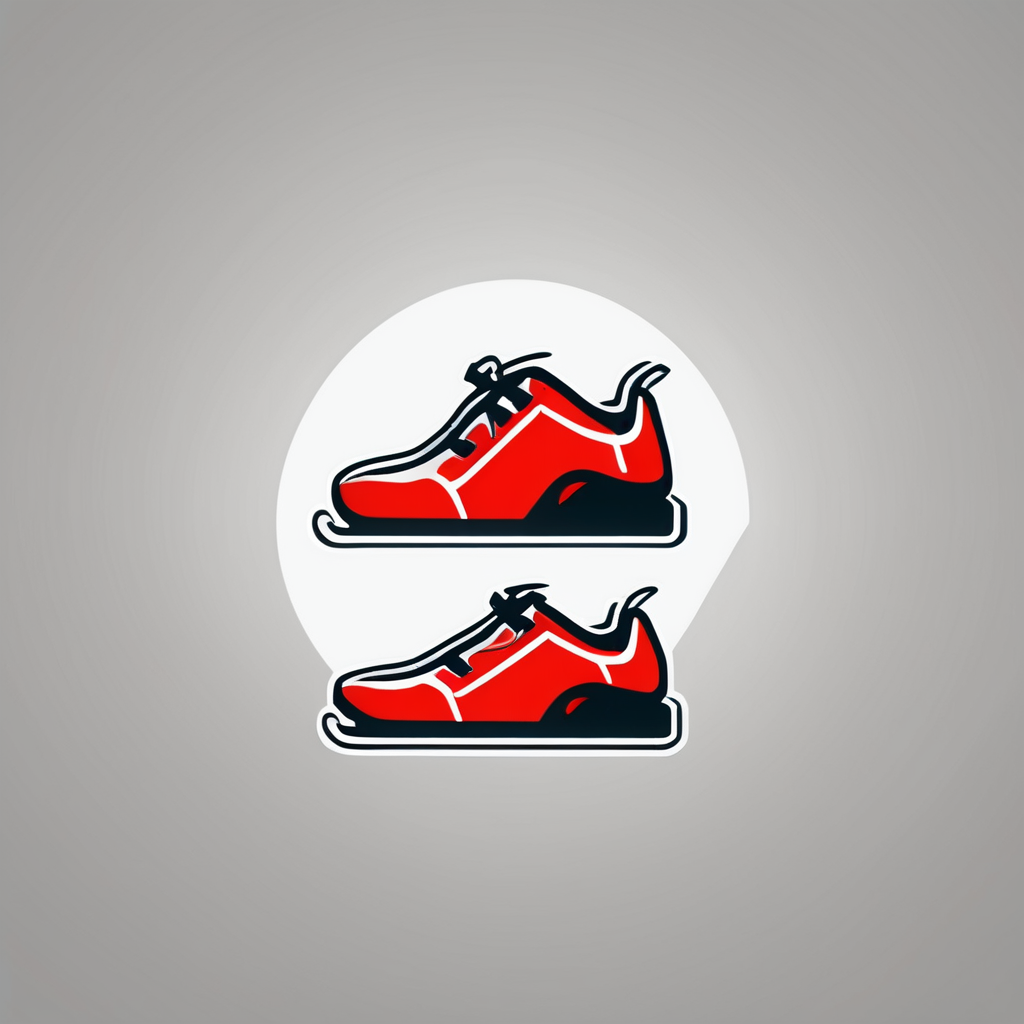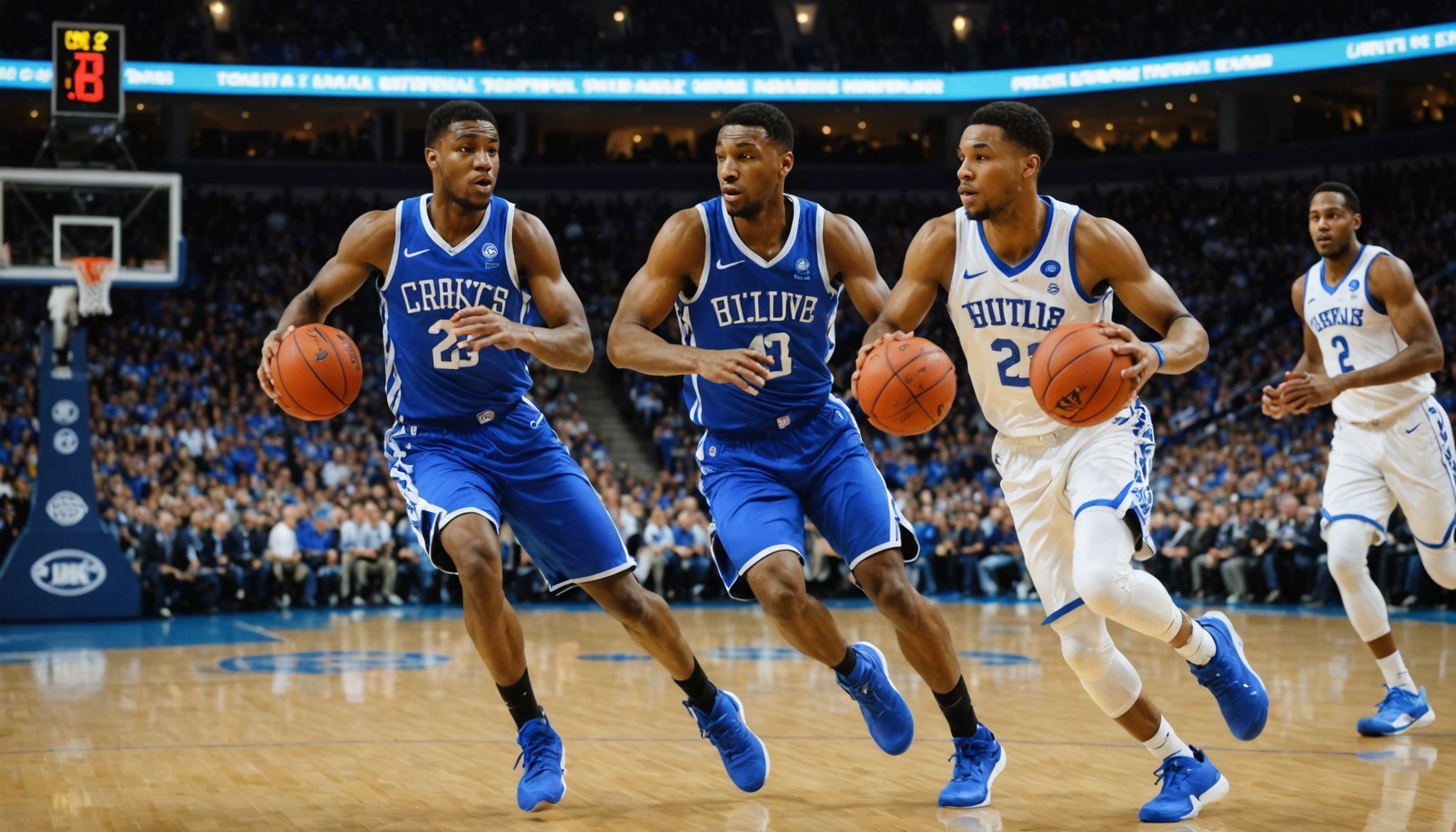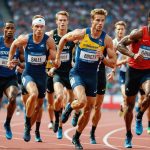Importance of Recovery for Athletes
Recognizing the importance of recovery for athletes is crucial in optimizing their performance. Recovery plays a significant role in not just restoring physical strength but also in maintaining mental resilience. Adequate recovery ensures that athletes can perform well, helping them bounce back after intense activity.
Inadequate recovery can have serious consequences. When the body does not have enough time to recuperate, it risks injury, burnout, and decreased performance levels. The impact of recovery on performance cannot be overstated as it influences endurance, strength, and overall athletic potential.
Also read : Master Ball-Handling: Elite Drills for UK Basketball Players to Minimize Turnovers Like a Pro!
Athletes have unique recovery needs, especially following demanding events like double-header matches. After such strenuous exertions, the body’s demand for proper rest, nutrition, and hydration increases. Recovery importance for athletes in these scenarios cannot be ignored, as it affects how well they can play and prevent injuries. They may need specific recovery routines to tackle fatigue and replenish energy reserves.
Incorporating varied recovery strategies that address both physical and mental aspects ensures a holistic approach to well-being. Meeting an athlete’s recovery needs is not just beneficial but necessary for long-term performance and career sustainability. This approach not only supports physical health but also reinforces mental fortitude, allowing athletes to remain competitive and healthy.
Also to read : Top Footwork Drills to Boost Defensive Skills for Kentucky Basketball Players
Hydration Techniques
In the realm of athletic performance, hydration strategies for athletes are paramount, especially post-competition. Replenishing fluids is crucial for recovery, aiding in the replenishment of sweat losses. Post-game hydration helps restore body fluids lost during intense activity, maintaining performance and health.
For effective rehydration, it is recommended athletes consume beverages rich in electrolytes, such as sports drinks. These not only replenish fluids but also restore essential salts like sodium and potassium. Plain water, while beneficial, lacks electrolytes necessary for optimal rehydration.
Timing is key in hydration recovery tips. Athletes should start hydrating immediately after games to prevent dehydration and cramping. Research shows that consuming small, frequent amounts of fluid accelerates rehydration faster than consuming a large quantity at once.
Athletes may also consider monitoring urine color as a simple yet effective way to gauge hydration status. A light yellow hue generally indicates adequate hydration levels, while a darker shade may signify dehydration.
Developing personal hydration strategies, tailored to individual sweat rates and preferences, can enhance recovery. Such tailored strategies ensure athletes meet their hydration needs effectively, ultimately supporting better recovery and sustained performance capabilities.
Nutrition for Optimal Recovery
After intense physical exertion, post-game nutrition is essential to regain energy and promote healing. A well-balanced meal is vital, supporting overall recovery and readiness for future challenges. Recovery meals for athletes should include various food groups to ensure nutritional balance and maximum recovery benefits.
Protein and carbohydrates play central roles in these meals. Protein aids in muscle repair and growth, while carbohydrates restore glycogen stores depleted during activity. A meal high in both components helps athletes spring back to action more swiftly, reducing fatigue and enhancing performance.
Timing of meals is critical to optimise recovery. Consuming nutrients promptly after games is beneficial. Ideally, athletes should eat within two hours of activity, when nutrient absorption is most efficient. This approach maximises the body’s ability to heal and prepare for upcoming demands.
For basketball players, specific nutrition tips can be especially helpful. Foods like lean meats, whole grains, and leafy greens support muscle recovery and energy replenishment. Incorporating these into a routine ensures that players maintain peak condition over time. Remember, tailoring meals to individual preferences and requirements is key in crafting effective nutrition strategies that yield the best recovery results.
Physical Recovery Methods
For athletes, incorporating recovery methods beyond just nutrition and hydration is vital. Stretching techniques are essential to enhanced flexibility and injury prevention. Dynamic and static stretches help in maintaining muscle elasticity, which is critical before and after exercise. Finished too soon? Incorporate stretching into daily routines to aid muscle recovery.
Take the advantages of ice bath benefits. Ice baths rapidly reduce muscle soreness and inflammation, common after intense workouts or competitions. The cold immersion constricts blood vessels, which decreases metabolic activity and reduces swelling. Although uncomfortable, enduring an ice bath for no more than 15 minutes can facilitate quicker muscle recovery and reduced fatigue.
Explore other physical recovery techniques. Foam rolling and massage not only improve flexibility and circulation but also help alleviate muscle tightness. These methods target deeper muscle layers, promoting blood flow and releasing tension, making them popular among athletes seeking effective recovery.
Regular application of these techniques ensures comprehensive physical recovery, providing an edge in athletic performance. They’re not only beneficial in maintaining fitness levels but also essential in keeping the body resilient to the demands of frequent competitions and training sessions.
Sleep and Rest Practices
Sleep recovery for athletes is essential in maintaining peak athletic performance, as it significantly influences physical and mental well-being. Sleep is when the body undergoes most of its healing processes, repairing muscles, restoring energy levels, and consolidating memories. Inadequate rest can lead to slower reaction times, decreased accuracy, and reduced endurance, all impacting an athlete’s competitive edge.
To optimise sleep for performance, recommended sleep practices include maintaining a regular sleep schedule, ensuring a quiet and dark environment, and avoiding electronics before bedtime. It’s crucial for athletes to aim for at least 7-9 hours of quality sleep per night. Napping can also be beneficial, providing a quick boost of alertness and energy, particularly after intense competitions.
Incorporating rest days into training schedules is vital for recovery, offering the body an opportunity to repair itself and alleviate fatigue. These rest periods help prevent overuse injuries, ensuring long-term participation in sports.
Understanding the critical role of sleep and rest in recovery helps athletes remain competitive and improve overall performance. By prioritizing adequate sleep and regular rest, athletes can enhance their resilience and sustain their athletic achievements for longer periods.
Mental Recovery Techniques
Focusing on mental recovery for athletes is crucial, as mental health in sports significantly influences performance. Just like physical recovery, mental recuperation is vital to sustaining long-term success. Stress management for players often involves structured approaches to relax and rejuvenate the mind after a competition or intense training.
To facilitate mental relaxation, techniques such as meditation and deep breathing exercises can be effective. These practices focus on calming the mind, improving focus, and reducing anxiety levels. Moreover, visualisation exercises—imagining success and positive outcomes—can bolster an athlete’s confidence and mental resilience.
Promoting a positive mindset post-competition is equally important. Practising gratitude and adopting positive self-talk can enhance an athlete’s self-esteem and motivation. Maintaining a growth mindset helps athletes perceive challenges as opportunities for improvement.
For holistic mental recovery, athletes might also engage in activities unrelated to sports—hobbies like reading, painting, or gardening—to divert their minds and cultivate mental freshness. Establishing tailored mental recovery routines, accommodating individual needs and preferences, can enhance an athlete’s performance, ensuring they approach each competition with a rejuvenated mind and body. These practices fortify the athlete’s psychological resilience, complementing physical preparedness.
Effective Post-Game Routines
Establishing effective post-game routines is crucial for enhancing recovery and performance. These routines should encompass various activities that cater to both physical and mental aspects. Consistency in these routines helps develop disciplined athlete recovery plans.
A successful post-game routine typically includes several components: rehydration, nutrition, stretching, and rest. Personalising these routines to suit individual needs is vital. For instance, some athletes may benefit from incorporating meditation or breathing exercises as part of their mental recovery approach.
To support optimal recovery, athletes should focus on individualising recovery protocols. Tailor routines considering personal fatigue levels, injury history, and specific sport demands. This ensure the specific recovery needs are addressed efficiently.
Effective routines used by athletes often combine different recovery strategies, merging physical methods with mental relaxation. For example, some athletes prioritise foam rolling and stretching while others engage in visualisation exercises or gratitude journaling. By crafting and sticking to tailored recovery habits, athletes can enhance their resilience, reduce injury risk, and remain competitive.
Ultimately, these personalised recovery habits underpin a sustainable approach to athletic success, ensuring athletes are mentally strong and physically capable for future challenges.






